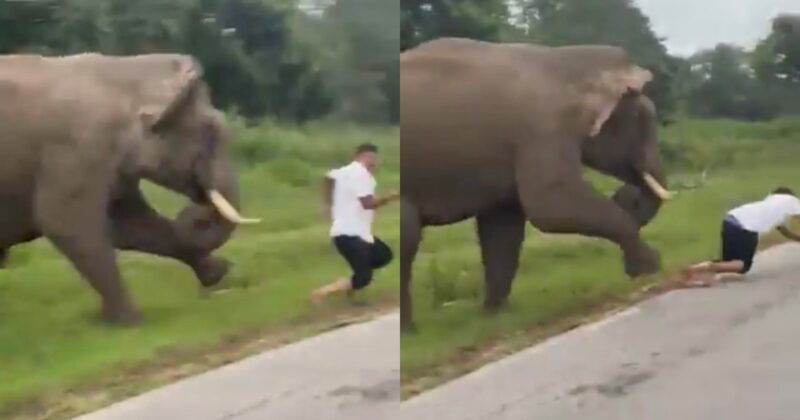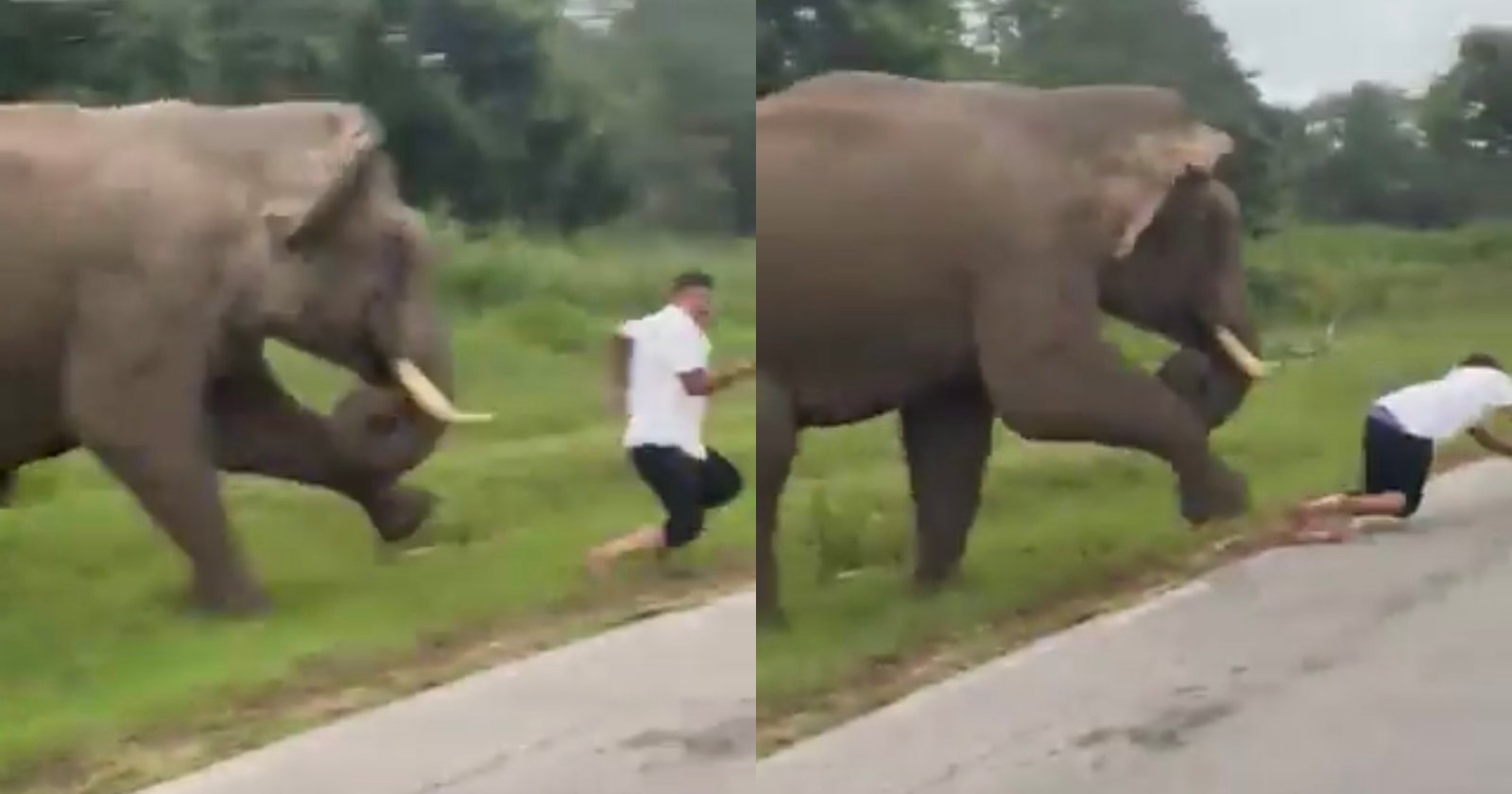
A man was seriously injured after an elephant attacked him while he was attempting to take a selfie with it.
Warning: The following videos contains content that some may find upsetting.
A tourist was crushed by a wild elephant at Bandipur Tiger Reserve in Karnataka, India, on Sunday after reportedly trying to take photos with the animal. The reserve is one of India’s most well-known and frequently visited wildlife parks.
Risking your life for a selfie isn’t worth it.
A Kerala tourist in Bandipur learned the hard way after stepping out of his vehicle for a photo, only to be charged and trampled by a wild elephant.
Lucky to survive. 🐘🚫📸 #WildlifeSafety #Bandipur pic.twitter.com/1LJ3gYtGgz
— Gautam (@gautyou) August 11, 2025
Footage recorded by other visitors shows the man approaching the elephant after stepping out of his car to take a selfie with the animal. The elephant reacts aggressively, charging at him.
The tourist tries to run away, but the elephant quickly catches up to the man. He falls while attempting to escape the animal, and the elephant pins him to the road with its foot before trampling him.
After the attack, the elephant moves away, leaving the man injured on the ground. According to a report by India Today, the tourist sustained serious injuries and was rushed to hospital.
The incident has reportedly brought into focus the rising problem of tourists disregarding safety advisories in India, especially for selfies. World Animal Protection describes 40% of “wildlife selfies” posted on social media as “bad selfies” — meaning someone hugging, holding, or inappropriately interacting with a wild animal. A “good” wildlife selfie was described as a picture where there is no contact between an animal and a human, and the animal is not being restrained or held in captivity to be used as a photo prop.
In February, a Canadian tourist had both her hands bitten off by a shark as she attempted to take a selfie with the animal. The 55-year-old woman lost both her hands after trying to take a picture with the shark while on vacation at Thompson Cove Beach in the Turks and Caicos Islands. In a study following the incident, researchers suggested that tourists chasing selfies may be contributing to the rise in shark attacks.
Image credits: Header photo via X/@@gautyou.
